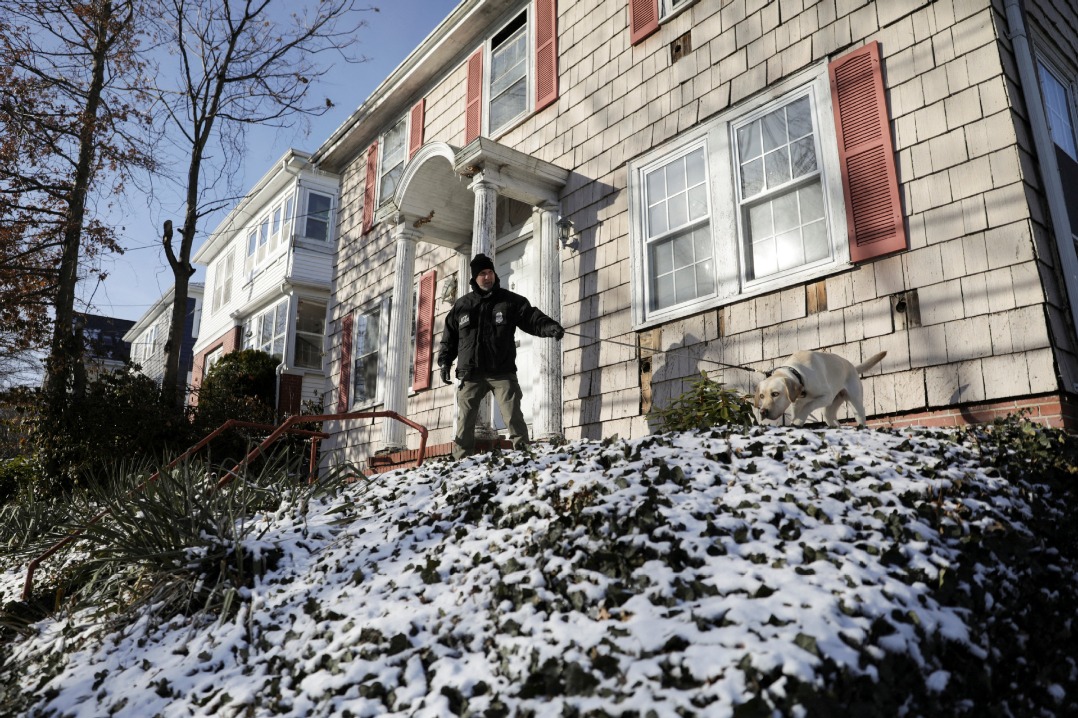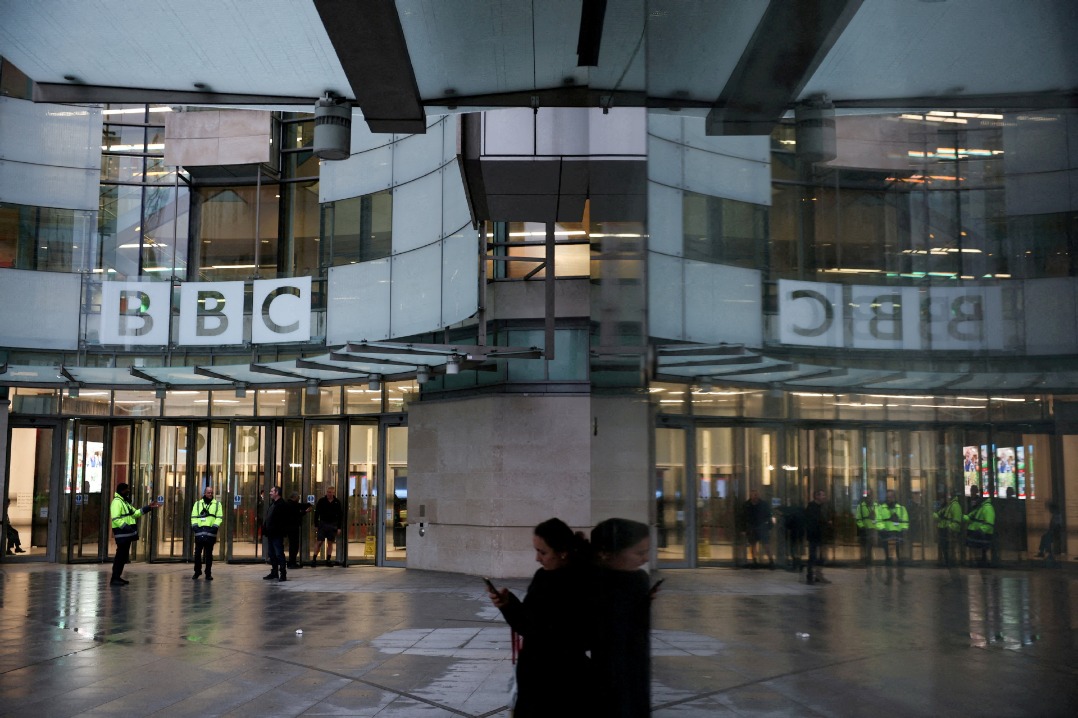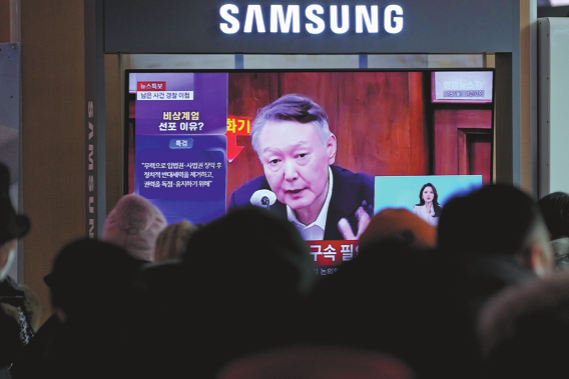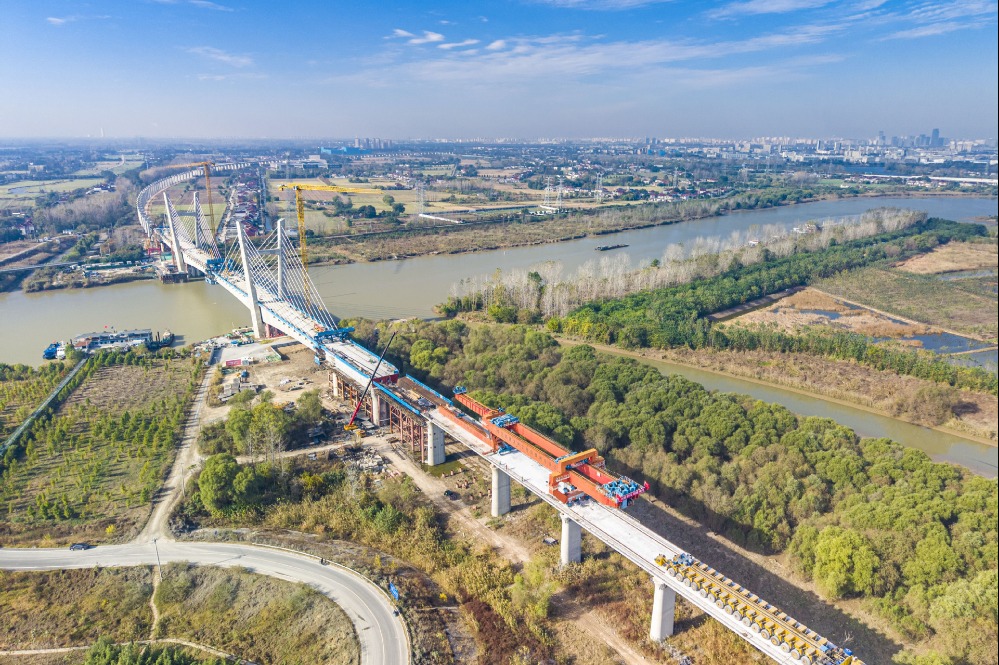Inflation elbows way into discussion


Inflation is not a problem until it becomes a problem, seems to be the approach that the Federal Reserve and US government are taking.
Lately, it looks like it could start becoming a problem.
In April, the consumer price index (CPI) rose 0.8 percent — 4.2 percent over the past 12 months — the fastest annual jump since 2008, the Labor Department reported on May 12. Excluding food and energy, it was the highest monthly increase since 1982.
The index for used cars and trucks rose 10 percent in April, according to a Bureau of Labor Statistics (BLS) release on May 13, the largest monthly increase since the data were first tracked in 1953.
"We know that because of the American Rescue Plan, people were buying cars because many people were afraid of taking public transit, which is not good either," White House Chair of the Council of Economic Advisers Cecilia Rouse told reporters Friday.
"So we hadn't forecasted that. The forecasters hadn't expected that," she said, adding that the Federal Reserve was also "a bit surprised by the jump".
Nearly all major CPI component indexes increased in April. The indexes for shelter, airline fares, recreation, motor vehicle insurance and household furnishings figured prominently in the overall increase.
The Producer Price Index also increased, by 0.6 percent in April.
The BLS breaks down "final demand" for goods and services in its indices.
A major factor in the April PPI for final demand goods was the index for steel mill products, which jumped 18.4 percent. Prices for beef and veal, pork, residential natural gas, plastic resins and materials, and dairy products also increased.
In the services component, indexes for airline passenger services, food retailing, fuels and lubricants retailing, physician care, and hardware, building materials and supplies retailing also moved higher.
Google searches for "inflation" and Twitter hashtags about inflation have soared, and "monthly price data reports have newly become front-page headlines", The New York Times reported.
"This is something people are talking about in their daily lives, it's not just a Washington thing," Michael Strain, a researcher at the American Enterprise Institute, told the Times.
The US government has already earmarked some $5 trillion for coronavirus relief and stimulus and plans to spend trillions more on a sweeping infrastructure program. That money is working its way through the economy.
"Now people are spending again, and obviously April's numbers show that they're spending even more aggressively than forecasters, most of them, anticipated," George Selgin, an economic policy expert at the libertarian Cato Institute, told thehill.com.
The White House and Federal Reserve have characterized the rising prices as "transitory", due to demand rebounding from the pandemic.
The Fed has remained steadfast in its objective to not raise interest rates before 2022 and has stated that it is comfortable to even let inflation run above its usual 2 percent target while the economy rebounds.
Fed Chairman Jerome Powell, in an April 28 news conference before the recent price index reports, said that a jump in inflation wasn't likely before full employment is reached.
"So that's not to say inflation won't — might not move up, but for inflation to move up in a persistent way that, that really starts to move inflation expectations up, that would have to — that would take some time. And you would think that, that it would be quite likely that, that we'd be in very strong labor markets for that to be happening."
"We are still 8 million jobs short of where we were pre-pandemic," Atlanta Federal Reserve President Raphael Bostic told CNBC on Monday. "Until we make substantial progress to close that gap, I think we've got to have our policies in a very strongly accommodative situation or stance."
In a May 13 speech in Philadelphia, Federal Reserve Board Governor Christopher Waller said: "Let's remember, and this applies to latest inflation data too, that a month does not make a trend — the trend for the economy is excellent."
He said that "despite the unexpectedly high CPI inflation report … the factors putting upward pressure on inflation are temporary, and an accommodative monetary policy continues to have an important role to play in supporting the recovery".
As typical when it comes to Fed policy, there is a push-and-pull between the doves and the hawks.
A May 12 editorial in The Wall Street Journal titled "Powell Gets His Inflation Wish" said: "Mr. Powell will need the current inflation surge to be transitory, or he'll find himself in a political jam if the markets force him to tighten. Better for the Fed to reassert its independence by moderating its policy now, rather than risk more damage down the road."
The Journal said that the Fed chairman "has been a cheerleader for the fiscal blowout of the last year, especially the Joe Biden-Nancy Pelosi agenda. The Fed has monetized nearly all of the new federal debt issuance of the last year, and Democrats are counting on the Fed to keep it up in the years ahead."
Prominent investor Stanley Druckenmiller, the chairman and CEO of Duquesne Family Office, said the Fed's insistence on holding interest rates down and maintaining its massive purchases of US Treasurys while the markets and economy heat up is risky long term.
"I can't find any period in history where monetary and fiscal policy were this out of step with the economic circumstances, not one," Druckenmiller told CNBC on May 11. "If they want to do all this and risk our reserve currency status, risk an asset bubble blowing up, so be it. But I think we ought to at least have a conversation about it.
"We're going to monetize our debt, and we're going to enable more and more of this spending; that's why I'm worried now for the first time that within 15 years we lose reserve currency status and of course all the unbelievable benefits that have accrued with it," Druckenmiller added.
"Policymakers at the Fed and in the (White House) need to recognize that the risk of a Vietnam inflation scenario is now greater than the deflation risks on which they were originally focused," Democratic economist Lawrence Summers told CNN.
"Whatever was the case a few months ago, it should now be clear that overheating — not excess slack — is the dominant economic risk facing the US over the next year or two," said Summers, who served as treasury secretary in the Clinton administration and was director of the National Economic Council in the Obama administration.
Jason Furman, head of the Council of Economic Advisers under former President Barack Obama, expressed concern about the political implications of inflation, on Bloomberg TV.
"I'd love to see them tilt a notch toward concern about inflation, but I think they'll mostly be doing more to explain this away," he said.































